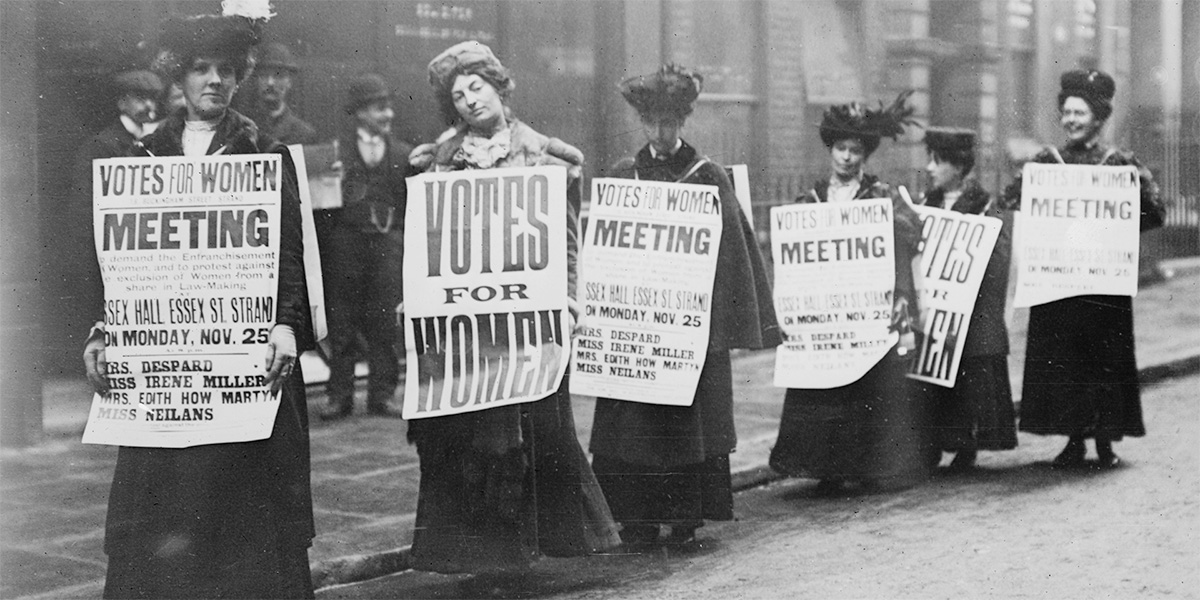The First World War and Votes for Women

Suffragettes, London (Image courtesy of the Library of Congress)
Join Dr Naomi Paxton as she examines how the First World War impacted the women’s suffrage movement in Britain.
It’s a common misconception that the Votes for Women movement stopped during the First World War, and that the right to vote given to some women in 1918 was solely in recognition of their contribution to the war effort.
However, while it’s true that a few high-profile militant suffragette leaders did choose to step away when the war began, suffrage campaigning did not stop between 1914 and 1918.
Established networks of suffragist and suffragette activists used the initiative, confidence and creativity they had developed through their political agitation to support the war effort, founding organisations that employed women across a variety of industries, including toymaking, policing, nursing, and entertaining troops at home and abroad.
In this revealing talk, Dr Naomi Paxton will explore some of the ways women in wartime entered new professions and learned new skills, while also examining how cross-party conversations in Parliament led to the passing of the Representation of the People Act in 1918, which tripled the number of those eligible to vote in the UK.
About the speaker
Naomi Paxton
Dr Naomi Paxton is a performer, researcher and broadcaster. She is an Associate Fellow of the School of Advanced Study, University of London; an Honorary Fellow of The Royal Central School of Speech and Drama; a Fellow of the Royal Historical Society; an AHRC/BBC Radio 3 New Generation Thinker; and a member of The Magic Circle.
Explore further

